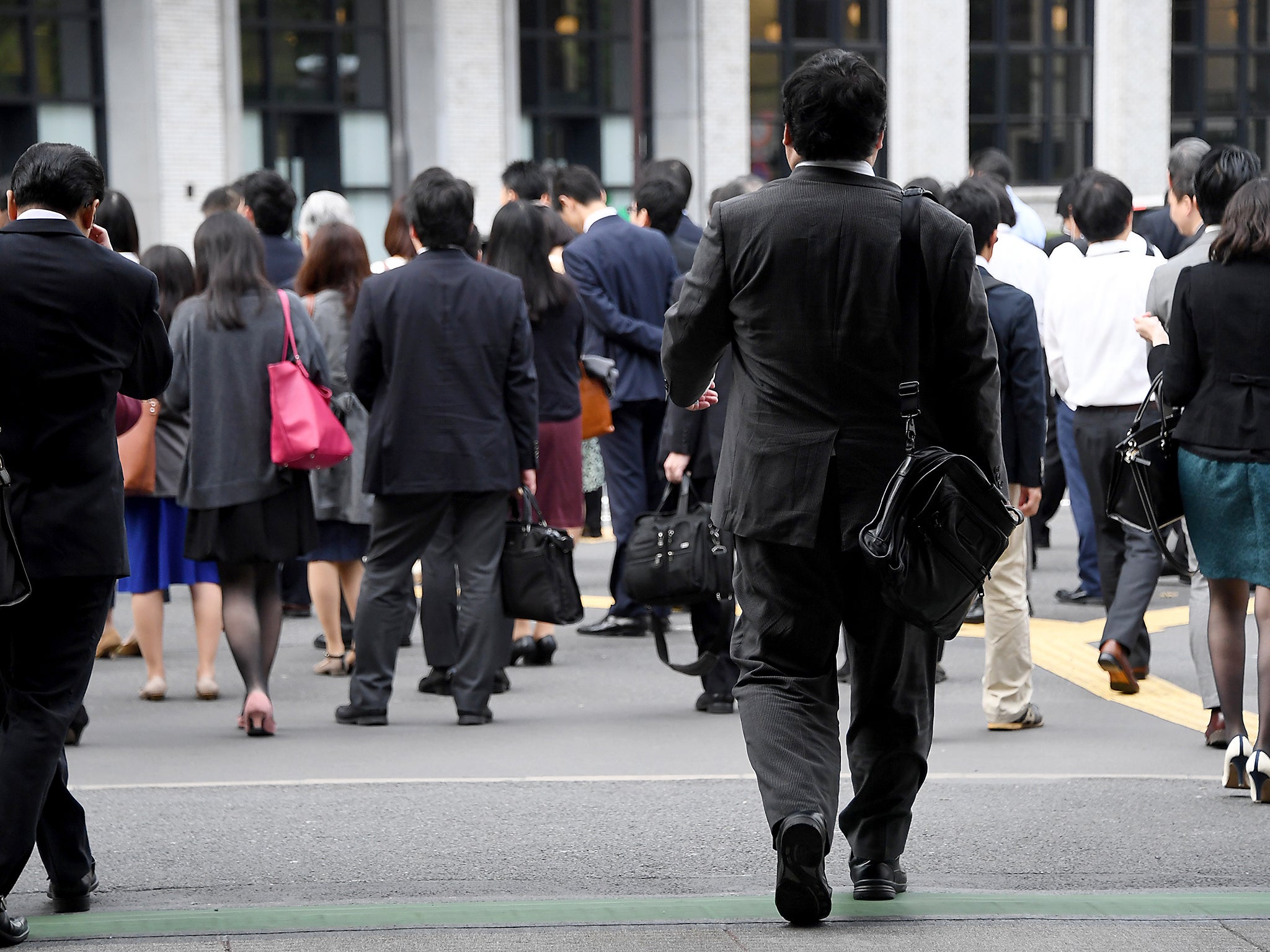Japan encourages remote working trials to combat burnout and overcrowding during 2020 Olympics
Plans to introduce a more flexible working culture might not just lead to less busy roads around the 2020 Olympic Games

In a bid to ease paralysing congestion and combat a deeply entrenched and destructive culture of extreme presenteeism, Japan is trialling a practice that other countries adopted years ago: remote working.
On Monday, almost 930 companies participated in the first ever Japanese Telework Day, due to be held on every 24 July between now and 2020, when Tokyo is due to host the Olympic Games.
The capital in 2013 won the bid to host the global sporting event, but overcrowding on its public transport network and roads has become a major concern for organisers.
Up to 920,000 spectators are expected to visit Tokyo each day during the games. Speaking to media last year the country’s Olympic minister described the constant traffic jams as a “big issue”.
She said that congestion was already an issue when the games were hosted in Rio de Janeiro, even though the Brazilian city had allocated special lanes and also has wider roads than Tokyo.
The government now hopes that these Telework Day trials – during which people are encouraged to work from home or a public space— will help the city’s employees prepare for being able to work remotely during the games, freeing up the transportation network and making it easier for spectators, athletes and organisers to move between venues.
"There’s no option but to ask regular commuters to stay at home rather than going out to work," Azuma Taguchi, a professor at Chuo University in Tokyo told Bloomberg. The alternative, he added, was overcrowding that could cause accidents and delays.
Tokyo has a population of close to 14 million and is at the centre of the world’s largest conurbation which is home to around 35 million people –a large proportion of which commutes every day.
"Once the Olympics start it will be hard to get to work, so we are doing this as an experiment," Takashi Kozu, president of the Ricoh Institute of Sustainability and Business, told Reuters.
As an added incentive for trailing remote working, he pointed out that "the lifestyles of younger generations are changing” and that alternative arrangement could lead to a better work-life balance and therefore standard of living.
Working remotely has become increasingly popular across many countries, especially in the technology sector, but Japan—a country traditionally obsessed with a culture of extensive face-time—has been slow to catch on.
Numerous cases of people dying as a result of being overworked, known in Japan as ‘karoshi’, has marred the nation’s reputation and earlier this year a government survey revealed that a fifth of Japan’s workforce is at risk of killing themselves by putting in too many hours.
Business news: In pictures
Show all 13
In 2015, a high-profile case of an advertising agency employee taking her own life after working 100 extra hours a month, prompted international outcry.
In February, Japan’s government launched a campaign urging employees to leave the office at 3pm – so much earlier than usual - on every last Friday of the month.
In May, the government released a list of more than 300 companies that had breached labour laws, hoping that the name-and-shame approach would facilitate a crackdown on overly demanding managers.
Now, the government hopes that Telework Days might also contribute to weaning the nation off the practice of extreme workaholism.
Some say that if successful, the measures could also help stimulate the economy.
The government has in the past said that it hopes reducing working hours and changing the culture could encourage women – even those with caring duties – to work, while also giving men more opportunity to be involved in raising children.
It might also help combat Japan’s problem of a shrinking labour force and population: more leisure time may mean more time between the sheets to boost the birth rate, experts have suggested.
The Ministry of Internal Affairs said that it would take about a month to collect data on how many people took part in Monday’s first Telework Day.
On Monday, the feedback on social media was mixed with some describing trains and buses as quieter than normal and others reporting no change.
Subscribe to Independent Premium to bookmark this article
Want to bookmark your favourite articles and stories to read or reference later? Start your Independent Premium subscription today.

Join our commenting forum
Join thought-provoking conversations, follow other Independent readers and see their replies